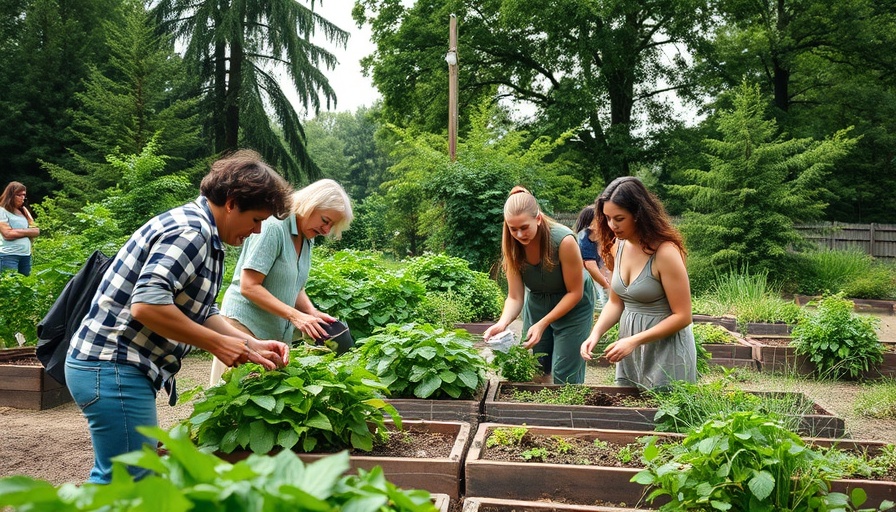
Understanding Recycling Limits: What You Can't Recycle
As sustainability becomes a growing priority among businesses, particularly in the hospitality sector, understanding the intricacies of recycling is crucial. Although many materials can be recycled, not all items make the cut. Recognizing what cannot be recycled is just as important for reducing waste and promoting a greener business model. Today, we’ll uncover some common culprits that often end up in recycling bins but really shouldn’t be there.
1. The True Cost of Contaminated Recycling
One of the primary issues related to recycling is contamination. This occurs when non-recyclable items mix with recyclables, leading to entire batches being rejected. For boutique hospitality professionals, this could mean increased waste disposal costs and unnecessary resource expenditure. It's essential to educate both staff and guests about recycling practices to minimize contamination and boost sustainability efforts.
2. Items That Often Go Unnoticed
Many seemingly benign items can’t be recycled. For instance, greasy pizza boxes and waxy paper are common trash items, yet many people mistakenly place them in recycling bins. Understanding these non-recyclables helps businesses avoid pitfalls and ensures they effectively market their sustainability initiatives.
3. The Broader Implications of Non-Recyclables
The impact of not correctly recycling extends beyond the immediate garbage truck. Incorrectly sorted recycling can lead to greater reliance on landfills, which contributes to climate change. Buildings like eco-lodges or boutique hotels should strive toward a circular economy, aiming for zero waste. It starts by ensuring that guests understand the guidelines for what they can and cannot recycle. Establishing clear signage and educational materials in rooms can help ensure your operations align with eco-friendly practices.
4. Inspiring Change Through Education
Educating guests and staff about the importance of recycling and the correct sorting practices plays a pivotal role in reducing waste. Consider incorporating workshops or informational sessions on sustainable practices, including recycling dos and don'ts. By fostering a culture of sustainability within your hospitality business, you can inspire guests to carry these habits into their home lives.
5. Practical Steps to Foster a Sustainable Business
Besides recycling efforts, consider engaging in zero waste practices within your operations. Simple steps, such as offering natural cleaning products and encouraging a no-straw or no-plastic policy, can significantly reduce your waste footprint. Investing in eco-friendly products not only showcases your commitment to sustainability but also appeals to the growing market of eco-conscious travelers.
In conclusion, while recycling is a vital component of sustainability, understanding what cannot be recycled is just as essential. By taking proactive steps, such as educating staff and guests about proper recycling methods, adopting zero-waste principles, and promoting eco-friendly products, boutique hospitality professionals can play an integral part in combating climate change and protecting our environment.
Please consider reviewing your recycling practices and integrating education into your sustainability initiatives. Every little bit counts in making a difference!
 Add Row
Add Row  Add
Add 




Write A Comment